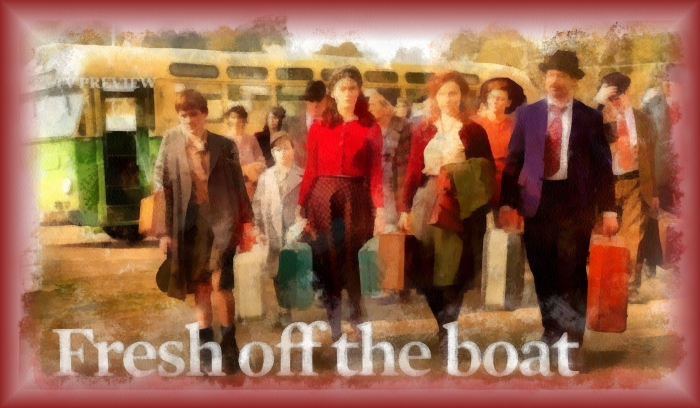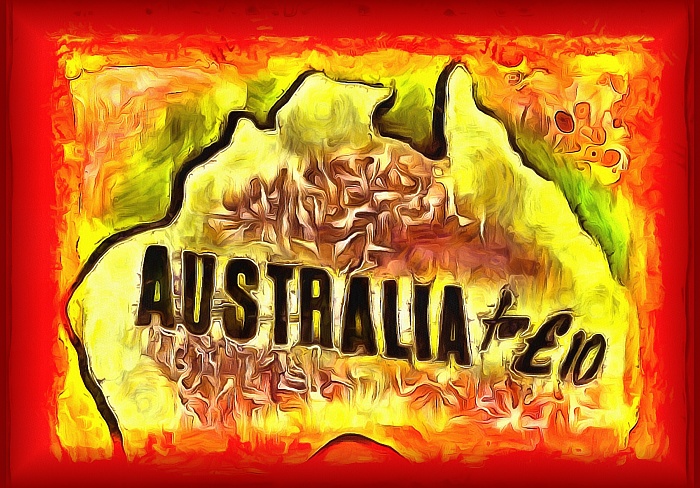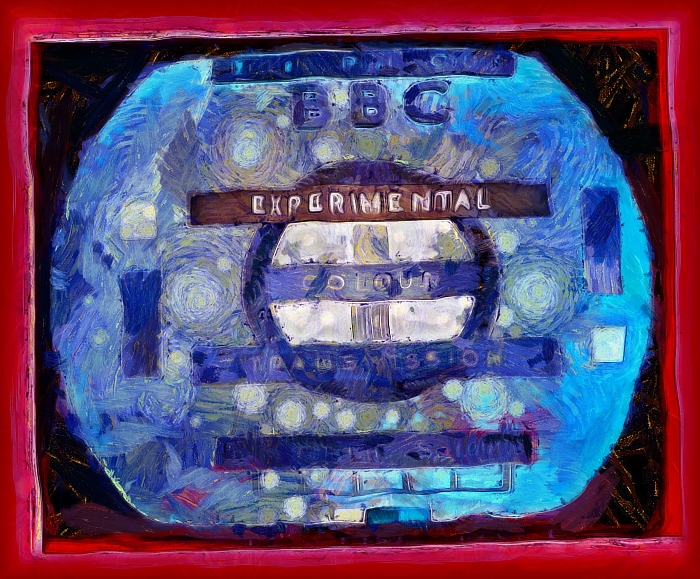New BBC Series 2023
Очередной выпуск моего авторского Блога.
Writer Danny Brocklehurst’s "Ten Pound Poms" opens in 1956. We are going to watch an interesting film about immigrants who used to settle in Australia...
Блог #66 | Another Daniel Brocklehurst movie

Fresh off the boat
A BBC series about post-war UK migrants down under steers a curious course.
TEN POUND POMS
The war was barely over when
Australia launched its Assisted
Passage Migration Scheme in
1945 – and in many respects
the project was about the war.
The urgency in the political
slogan behind it – “populate
or perish” – was a product of
quite how close Japanese forces
had come to Australian soil.
The country, it was believed,
needed people not only to work
in its industries, but also to
establish Australia as a home
for the European races.
For Britons, the scheme
promised an escape from
post-war privations in favour
of, as the billposters on walls
in London put it, “a sunnier
future”.
For a processing fee of £10
(about £450 today, so not
quite as cheap as it sounds)
there was the promise of a new
life as a “Ten Pound Pom”.

By the time the scheme ended in
1982, more than a million
British people, along with selected
immigrants from other
European countries, had taken
up the off er. (The equivalent
policy in New Zealand brought
in about 77,000.)
Writer Danny Brocklehurst’s
Ten Pound Poms opens
in 1956 with Terry (Warren
Brown, Strike Back), a former
prisoner of war trying to
feed his family as a builder but
being crushed by PTSD and
the drinking and gambling
that accompany it.
His wife, Annie (Faye Marsay, Andor),
sees an ad in the paper and fi ve
minutes of dramatic time later,
the family are stepping off the
boat and into a new land.
They’re soon disappointed
when they’re transported not
to the promised suburban
house with a sunny backyard
but to one of the hinterland
“migrant hostels” that
held the new arrivals.
There are further
let-downs, as it becomes
clear Terry’s only employment
option is a brutal labouring
job where he answers to Dean
(veteran Australian character
actor David Field), a
gibbering racist sociopath
with a thing about poms.
But Terry and his family
are in a sense prisoners:
as a condition of the scheme,
they’ve given up their
passports for two years.
Brown is terrifi c, playing
Terry with a tortured dignity,
and the family’s situation is
historically authentic even
if Terry and Annie’s shock at
rampant Australian racism
seems overplayed.
So it’s a shame Brocklehurst
hasn’t had enough confi dence in
the social history to carry the
story.
Instead, we get several
subplots laid over a narrative
that might have been interesting
enough on its own.
Kate (Michelle Keegan, Coronation
Street), an unmarried nurse
who drugs her fi ancé on the
eve of departure to make the
voyage on her own, befriending
Annie on the way, emerges
as an awkward mix of grieving
mother and femme-fatale spy.
Other characters seem to exist
only for the sake of other subplots.

The migrant scheme
changed the lives of those
who took it up – even the ones
who eventually went home.
It changed Australia politically
(Julia Gillard and Tony Abbott
were both assisted migrants)
and culturally.
The Easybeats met at the
Villawood hostel and AC/DC,
the Bee Gees and Jimmy Barnes
were all Ten Pound Poms.
It’s easy to imagine this story
being told with a generational
sweep that captures that change,
but Brocklehurst has created
a family drama with frills.
It’s far from terrible – it
looks good and the acting is
strong – but the sense persists
that it might have been more.
Проект Fixed Matches Betting
© 2015 - This is a consulting website by Ruslan Bekhterev